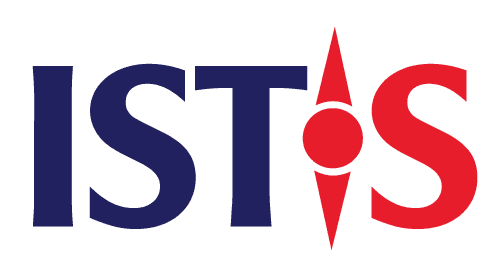Open knowledge refers to information that is freely accessible, shareable, and reusable by anyone, without legal, technological, or social barriers. It is built on the principle that knowledge grows more valuable when it is openly exchanged—whether that knowledge comes in the form of research papers, educational resources, government data, or collaborative maps. Unlike private or proprietary information, open knowledge is not restricted by copyrights, patents, or paywalls. It’s designed to circulate widely, allowing people from all backgrounds to use it, build on it, and create new value.
While often confused with open data, open knowledge is broader. It encompasses open access to academic research, open-source software, open educational resources, and any form of intellectual output that invites contribution and reuse. This openness enables individuals, institutions, and even governments to learn faster, innovate more effectively, and work together across borders and sectors.
The importance of open knowledge has only grown in our digital era. Today’s challenges—climate change, public health, digital inequality—require not just expert insight but inclusive, global participation. When knowledge is locked behind paywalls or controlled by a few entities, its potential impact is diminished. But when it’s open, it can empower communities, inform better policies, and fuel local innovations.
In short, open knowledge helps level the playing field. It supports students who can’t afford textbooks, researchers in developing countries who need access to journals, and citizens who want to understand how their governments function. It’s not simply about access—it’s about equity, collaboration, and the belief that knowledge should serve the common good.
The rise of open knowledge is changing the way we think about ownership, authorship, and authority. It invites us to imagine a more democratic information ecosystem—one where barriers to learning and contribution are removed, and where collective intelligence can thrive. In a world increasingly shaped by digital tools and global interdependence, open knowledge is a foundation for shared progress.
The Pillars of the Open Knowledge Movement
The open knowledge movement rests on a set of foundational principles and practices that guide how information is created, shared, and reused. These pillars provide both the ethical framework and the practical structure that sustain a culture of openness across disciplines and regions.
The first pillar is open access—particularly in academia and research. This means making scholarly publications freely available online without subscription fees or access barriers. Open access helps dismantle the gatekeeping systems that prevent valuable knowledge from reaching the public, especially in low-resource settings. It empowers students, educators, journalists, and policymakers with timely, peer-reviewed insights.
The second is open data, often driven by governments, nonprofits, and civic tech communities. When data about public spending, climate trends, or healthcare is released in machine-readable, interoperable formats, it becomes a powerful tool for accountability, innovation, and evidence-based decision-making. Open data has already enabled everything from disaster response planning to predictive urban design.
The third pillar is open source software, which underpins much of today’s digital infrastructure. Open source isn’t just about code—it’s about collaboration. Developers and organizations can contribute to and build upon shared tools, often resulting in faster, more secure, and more cost-effective technologies. Many of the world’s leading platforms, including the internet itself, are built on open-source foundations.
Open educational resources (OER) make up another key area. These include textbooks, lesson plans, videos, and tools that are freely licensed for use, adaptation, and redistribution. In many parts of the world, OERs are a lifeline for schools and educators with limited resources, and they support personalized learning models that commercial systems often don’t.
Finally, the movement depends on open licensing—typically through frameworks like Creative Commons. These licenses clearly communicate what can be done with a piece of content, removing ambiguity and encouraging creative remixing and redistribution.
Together, these pillars form the backbone of an ecosystem that prioritizes transparency, participation, and inclusivity. The open knowledge movement is not a fringe idea—it’s a growing force with the potential to reshape education, governance, research, and civic life.
Where Open Knowledge Changes Lives
Open knowledge is a practical force with tangible benefits. Across the world, people and communities are using open access to information to solve local problems, drive innovation, and challenge inequity. From science labs to rural classrooms, the results are deeply human.
In the field of public health, open access to research has proven life-saving. During the COVID-19 pandemic, researchers rapidly shared genome sequences, treatment protocols, and epidemiological data in real time. This openness allowed scientists across borders to build on each other’s work, accelerating vaccine development and shaping public health strategies. The same principle applies to neglected diseases, where open research can help fill gaps left by for-profit pharmaceutical models.
Education is another arena of transformation. Open educational resources have enabled teachers in underserved areas to access and adapt high-quality materials for their students. In places where textbook shortages are common or content is outdated, these free resources help close learning gaps and foster local language adaptation. Organizations like Khan Academy and Wikibooks show how open models can scale personalized learning.
In governance and civic engagement, open data initiatives have empowered citizens to monitor government spending, track corruption, and demand better services. In Kenya, the Huduma platform connects open data to local advocacy, while in Taiwan, participatory policymaking tools allow citizens to co-create laws using open-source platforms.
Climate action also benefits from open knowledge. Platforms like OpenStreetMap have helped volunteers map disaster-prone regions, assisting humanitarian agencies in disaster response and resilience planning. Shared environmental datasets contribute to global climate modeling and allow local communities to prepare for floods, droughts, or agricultural shifts.
Perhaps most importantly, open knowledge helps level the playing field. Small startups can access public datasets to train AI models. Civil society groups can use shared research to design better interventions. Students in remote areas can explore the same materials as those at elite universities.
In each case, the democratization of information turns passive consumers into active participants—creators, critics, and problem-solvers. Open knowledge doesn’t just inform—it enables.
Barriers to Openness
While the promise of open knowledge is vast, the path to realizing it is far from straightforward. Structural, legal, and cultural obstacles continue to limit access, slow adoption, and create unequal landscapes for sharing and using information. These barriers are not simply technical—they are deeply human and often political.
One of the most persistent hurdles is copyright law. In many countries, intellectual property regimes favor commercial publishers and content holders, restricting how knowledge can be reused—even for education or public benefit. Scientific research, for instance, is frequently locked behind expensive paywalls, with universities and independent researchers in lower-income countries unable to afford access. While open-access journals and Creative Commons licenses offer alternatives, they still face resistance from legacy publishing models and prestige-based academic systems.
Cultural attitudes toward knowledge ownership also shape openness. In some sectors or regions, there remains a strong belief that information is power and should be protected for competitive or institutional advantage. This mindset is often reinforced in corporate R&D, where knowledge is tightly guarded, and in education systems that equate quality with exclusivity.
Language and localization present additional challenges. A wealth of open content exists, but much of it is in English. Without translation and contextual adaptation, other communities may find open knowledge inaccessible or irrelevant. True openness requires not just availability, but usability across linguistic, cultural, and educational boundaries.
Finally, digital divides—in connectivity, literacy, and device access—can make “open” a hollow promise. If people lack the tools or skills to access information, availability alone is not enough.
Addressing these barriers requires more than technology. It calls for advocacy, legal reform, inclusive design, and cultural change—work that must be collective and persistent.
What Comes Next
The concept of open knowledge is evolving—becoming more dynamic, more integrated, and more essential to how we solve complex global challenges. As we move into a future shaped by rapid technological shifts, growing inequality, and urgent planetary crises, openness is poised not just as a value but as a necessity.
One of the most promising trends is the fusion of open knowledge with emerging technologies. Artificial intelligence and machine learning depend heavily on large, diverse, and accessible datasets to function ethically and effectively. Open data initiatives—from climate monitoring to genomics—are feeding the systems that power medical breakthroughs, smarter cities, and more responsive governance. Yet, these benefits can only scale if openness is prioritized in how data is collected, shared, and governed.
The intersection of open knowledge with citizen science and participatory research is also expanding. People are no longer just consumers of knowledge—they are becoming co-creators. Communities mapping their own health trends, students contributing to biodiversity research, or local innovators remixing open-source designs for affordable solutions—these are signs of a future where knowledge flows in many directions.
There’s also growing momentum behind policy reform and global collaboration. The UNESCO Recommendation on Open Science and similar frameworks signal a shift toward institutionalizing openness in research, education, and government. These efforts aim to make open knowledge the default rather than the exception, supported by public funding, digital infrastructure, and fair recognition systems.
However, the future of openness will depend on how well we address its foundational tensions—balancing openness with privacy, innovation with equity, and access with accountability. Open knowledge must be designed with care, not just released with good intentions. Issues of consent, power dynamics, and data sovereignty will require thoughtful, inclusive dialogue.
Ultimately, the next chapter of openness will not be written by a single movement or platform. It will be shaped by educators, technologists, policymakers, artists, and communities working across boundaries.








